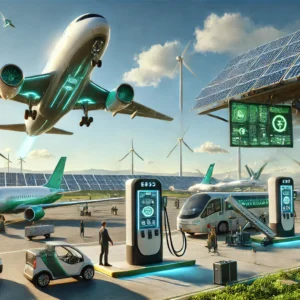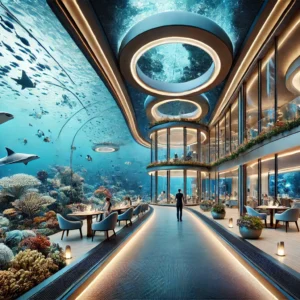
Imagine gliding through the cosmos and checking into a hotel orbiting Earth—a futuristic concept rapidly turning into reality. Space hotels are poised to transform the tourism industry by offering once-in-a-lifetime experiences in zero gravity, spectacular views of our planet, and unparalleled luxury in the final frontier. In 2025, the first commercial orbital resorts and packages are drawing global attention, promising to redefine travel and reshape our ideas of leisure and adventure.
The Evolution of Space Tourism
Space tourism has come a long way from its early experimental days. Today, companies are pushing the boundaries of possibility by creating hotels in low Earth orbit that offer tourists not just a trip into space, but a fully immersive experience. These orbital resorts are being designed to provide comfort, safety, and cutting-edge technology—ensuring that every moment is as exhilarating as it is secure.
What Are Space Hotels?
Space hotels are commercial orbital platforms designed to accommodate tourists, offering facilities similar to terrestrial hotels but with a twist—a breathtaking view of Earth and the wonders of space. These structures integrate advanced life-support systems, luxury amenities, and state-of-the-art technology to ensure guests experience a seamless, once-in-a-lifetime adventure while maintaining top-level safety protocols.
Government Involvement and Policy Frameworks
National space agencies and governments worldwide are increasingly supporting commercial space ventures. Recent policy updates have paved the way for private companies to build and operate orbital hotels. For example, the U.S. Federal Aviation Administration (FAA) has been working closely with companies to develop comprehensive safety standards and licensing procedures tailored for space tourism.
In Europe, initiatives by the European Space Agency (ESA) have also focused on fostering public–private partnerships, recognizing that the economic and scientific benefits of commercial space ventures extend far beyond tourism. These government-backed policies not only provide financial support but also ensure that these projects adhere to strict safety and environmental guidelines.
Political debates continue over the balance between innovation and regulation. Critics argue that over-regulation could stifle creativity and delay the deployment of these groundbreaking projects, while proponents insist that stringent oversight is necessary to protect both investors and tourists. For more details, you can refer to recent updates from NASA and ESA.
Research Labs and Scientific Breakthroughs
At the heart of the space hotel revolution are groundbreaking research and development efforts by leading scientific institutions. Research labs worldwide are racing to solve the myriad technical challenges involved in sustaining human life in orbit—ranging from radiation protection to the development of efficient life-support systems.
A recent study published in Acta Astronautica detailed innovative approaches to creating closed-loop life-support systems, which are crucial for long-term orbital habitation. Scientists are developing compact, energy-efficient systems that recycle air, water, and waste, ensuring that space hotels can operate sustainably even in the harsh environment of space.
Collaboration is key, and international partnerships are already taking shape. Researchers in Japan and Europe are jointly testing new materials for radiation shielding, while American labs are focused on enhancing zero-gravity medical facilities to cater to the unique health challenges of space tourists. These initiatives are not just academic exercises—they form the backbone of the safety and operational protocols that will make space hotels viable.
Political and Global Business Perspectives
Political Dynamics
The emergence of space hotels has ignited a firestorm of political interest. In congressional hearings and international forums alike, lawmakers are debating how best to regulate commercial space travel. Issues such as liability, insurance, and environmental impact are at the forefront of these discussions.
Some politicians see space tourism as a catalyst for national pride and economic growth, advocating for policies that encourage innovation and competition in the global space industry. Others, however, raise concerns about the potential for space debris and the broader environmental impact of increased space travel. This ongoing debate is critical to shaping the legal framework that will govern space tourism in the coming years.
Business and Economic Impact
From a business perspective, the commercialization of space is already attracting enormous investment. Venture capital firms, technology giants, and even traditional hospitality companies are pouring billions into projects that promise to make orbital hotels a reality. Analysts predict that the global space tourism market could be worth tens of billions of dollars by the end of this decade.
Major players in the aerospace industry, including SpaceX, Blue Origin, and Virgin Galactic, have already made significant strides toward commercial spaceflight. Their forays into orbital tourism have sparked a cascade of innovation and investment, leading to new business models that combine luxury travel with space exploration.
Business leaders argue that the economic benefits of space hotels extend beyond tourism. They see potential in developing ancillary services such as space-based research, satellite servicing, and even manufacturing in microgravity—fields that could revolutionize industries on Earth. For more on this evolving market, check out insights from SpaceNews and Forbes.
Celebrity and Public Opinion: A Mix of Awe and Aspiration
High-profile celebrities and sports figures have embraced the allure of space tourism. Several well-known personalities have publicly expressed their excitement at the prospect of vacationing in space. A famous actor recently described a potential stay in a space hotel as “an otherworldly escape that transcends traditional luxury,” while a renowned sports star mentioned how the idea of experiencing weightlessness on holiday is “the ultimate thrill.”
Business moguls and tech innovators are similarly enthusiastic. Their endorsements not only boost public interest but also drive further investment in the sector. These endorsements contribute to a growing cultural narrative where space tourism is seen as the pinnacle of modern travel—combining adventure, technology, and exclusivity.
Generational Perspectives: From Nostalgia to Cutting-Edge Excitement
The Wisdom of Older Generations
For many older adults, the concept of space tourism evokes a blend of nostalgia and skepticism. Those who remember the early days of space exploration—when the Apollo missions captured the world’s imagination—find themselves both excited and cautious. They cherish the historical significance of human spaceflight but are also wary of the risks involved in commercial ventures.
Older generations often emphasize the need for rigorous safety protocols and regulatory oversight, drawing on decades of experience with technological advancements. Their perspectives serve as a valuable counterbalance to the exuberance of youth, reminding us that while innovation is exciting, it must be tempered with responsibility.
Youthful Exuberance
In contrast, younger generations are often the most enthusiastic about space hotels. Digital natives, who have grown up in an era of rapid technological change, view space tourism as the next frontier in adventure travel. For them, the idea of spending a vacation orbiting Earth is not only exciting but also a symbol of human progress.
Social media platforms are abuzz with discussions about the future of space travel, with influencers sharing imagined itineraries and futuristic travel vlogs. This youthful optimism is a driving force behind the rapid development of space tourism, as tech-savvy consumers push for more accessible and innovative travel experiences.
Social and Cultural Impacts
The opening of space hotels is more than just a technological breakthrough—it represents a cultural shift in how we perceive travel and human achievement. As space tourism becomes a reality, it challenges traditional notions of luxury and adventure, blending science, art, and human aspiration into a single, transformative experience.
Space hotels promise to bring people together in ways that terrestrial travel cannot. Guests will not only experience zero gravity and breathtaking views of Earth but also become part of an exclusive community of pioneers on the cutting edge of human exploration. This has the potential to inspire a new era of creativity and collaboration across cultures, transcending geographical and social boundaries.
However, these advancements also raise questions about accessibility and inequality. Critics argue that space tourism, like many groundbreaking technologies, may initially cater only to the wealthy, widening the gap between those who can afford such luxuries and those who cannot. Addressing these concerns will require thoughtful policy measures and innovative business models that democratize access to space.
Global Business, Revenue, and Market Trends
The economic implications of space hotels are profound. As governments, private companies, and investors rally behind this new frontier, the space tourism market is poised for explosive growth. Here are some key economic highlights:
- Investment Surge: Venture capital and private equity firms are heavily investing in space travel startups. Companies like SpaceX, Blue Origin, and Virgin Galactic have already raised billions in funding, fueling further innovation.
- Revenue Projections: Analysts predict that the global space tourism market could generate tens of billions of dollars in revenue within the next decade. High-end packages, exclusive experiences, and ancillary services such as space-based research and manufacturing are expected to drive this growth.
- Job Creation: The expansion of space tourism will create new job opportunities across various sectors, including aerospace engineering, hospitality, customer service, and research and development.
- Economic Hubs: Cities such as Houston, Los Angeles, and London are emerging as centers for space industry innovation, supported by local governments and academic institutions that foster research and development.
For more detailed economic analysis, refer to market reports from McKinsey & Company and Deloitte.
Milestones and Future Timelines
The journey to fully operational space hotels is marked by several key milestones that signal the progress of this industry:
- 2022-2023: Early prototype tests and suborbital flights provide initial data and build public interest in commercial space travel.
- 2024: The launch of the first commercial orbital hotel is anticipated, supported by government grants, private investments, and rigorous safety trials. Important dates during this period include scheduled test flights and public demonstrations, as announced by leading space agencies.
- 2025: A pivotal year for space tourism as multiple orbital hotels are expected to open their doors to paying customers. This year is marked by key international conferences and policy updates that set the standards for commercial space travel.
- 2030 and Beyond: The full-scale deployment of space hotels across multiple orbits, creating a network of orbital resorts that redefine global travel and connectivity.
These milestones are documented in recent industry reports and government announcements, such as those from NASA and the European Space Agency.
How Space Hotels Work: The Technology Behind the Experience
Space hotels are marvels of modern engineering, combining aerospace technology with luxurious hospitality to create a safe and unforgettable experience for tourists. Here’s a look at the key components:
Orbital Modules and Habitats
Space hotels consist of modular habitats that orbit Earth at altitudes similar to the International Space Station. These modules are equipped with life-support systems, radiation shielding, and artificial gravity systems designed to provide a comfortable environment for guests. Cutting-edge technology ensures that these habitats can operate autonomously, maintaining optimal living conditions regardless of the external space environment.
Propulsion and Transportation
Accessing a space hotel requires advanced propulsion systems that safely transport tourists from Earth to orbit. Companies are developing reusable spacecraft that dramatically reduce the cost of space travel while ensuring a smooth and safe journey. These spacecraft are equipped with the latest in navigational and safety technologies, making the transition from Earth to orbit as seamless as possible.
Safety and Communication Systems
Safety is paramount in space tourism. Space hotels are fitted with state-of-the-art emergency systems, including rapid evacuation protocols, redundant communication networks, and continuous monitoring of atmospheric and structural conditions. Quantum encryption and high-speed communication systems ensure that guests remain connected to Earth, even in the vast expanse of space.
Real-World Applications and Experiences
Luxury and Adventure Combined
The appeal of space hotels lies in their ability to combine luxury with the thrill of space travel. Guests can enjoy panoramic views of Earth through large observation windows, indulge in gourmet meals prepared by top chefs, and participate in zero-gravity activities that defy everyday expectations. These experiences are not just about leisure—they represent a bold step into a new era of travel, where the boundaries of adventure and opulence are redefined.
Scientific and Educational Opportunities
Beyond leisure, space hotels offer unique opportunities for scientific research and education. Tourists may participate in microgravity experiments, observe Earth’s weather systems from a new perspective, and engage with onboard scientists who are conducting cutting-edge research. This blend of recreation and research makes space hotels an exciting prospect for both enthusiasts and academics alike.
Cultural and Social Impact
The advent of space hotels is set to influence culture and society in profound ways. As people from diverse backgrounds come together to experience the wonders of space, a new form of global community is emerging—one that transcends national boundaries and celebrates human achievement. Public discussions and media coverage are already sparking debates about the role of space in our future, the ethics of commercialization in space, and how this new frontier can be made accessible to all.
Voices from All Walks of Life
Celebrity and Influencer Endorsements
Celebrities and social media influencers are playing a significant role in popularizing space hotels. High-profile figures have shared their excitement about the prospect of an orbital getaway, using their platforms to spark public interest and inspire dreams of cosmic adventure. Their endorsements not only bring glamour to the concept but also help demystify the technology behind space tourism for the general public.
Business Leaders and Investors
Top business executives see space hotels as a revolutionary investment opportunity. They predict that the commercialization of space will open up entirely new markets, drive economic growth, and generate significant revenue. With forecasts of a multi-billion-dollar industry by the 2030s, investors are eager to back ventures that promise to reshape the future of travel and connectivity.
Perspectives of the Elderly
Older generations, who witnessed humanity’s first steps into space, often view space hotels with a mixture of nostalgia and excitement. They recall the historical significance of early space missions and are eager to see the next chapter of human exploration unfold. At the same time, they stress the importance of maintaining rigorous safety standards and ensuring that the human element remains central to these technological marvels.
Youthful Optimism
For younger people, space hotels symbolize the ultimate escape—an adventure that transcends the mundane and catapults them into the realm of science fiction turned reality. Digital natives, who have grown up with constant technological innovation, are enthusiastic about the prospect of experiencing life beyond Earth. Their excitement is evident on platforms like Twitter and Instagram, where hashtags such as #SpaceVacation and #OrbitalGetaway trend among tech enthusiasts and dreamers alike.
Global Impact and the Future of Travel
The implications of space hotels extend far beyond individual experiences. As these orbital resorts become a reality, they are set to revolutionize the global travel industry. Here’s how:
- Economic Growth: The space tourism market is poised to generate substantial revenue, driving economic development in sectors ranging from aerospace engineering to luxury hospitality.
- Technological Innovation: Advancements in space travel technology will trickle down into everyday applications, spurring innovation across industries.
- Global Connectivity: Space hotels could serve as hubs for international collaboration and research, fostering a new era of global connectivity and scientific discovery.
- Cultural Exchange: As people from different countries experience space tourism, cultural barriers will blur, creating a more interconnected and empathetic global community.
For further reading on these topics, you may explore Space.com and The Verge’s space section.
Final Thoughts
The opening of space hotels for tourists marks a bold new chapter in the evolution of travel. It is a testament to human ingenuity, the relentless pursuit of adventure, and our enduring desire to explore the unknown. As governments, research institutions, and private companies converge to create this futuristic industry, the boundaries between science fiction and reality blur, ushering in an era of limitless possibilities.
From groundbreaking government initiatives and international regulatory frameworks to enthusiastic endorsements by celebrities and business moguls, every aspect of society is buzzing with anticipation for what lies ahead. Whether you’re captivated by the technological marvels behind orbital resorts or inspired by the promise of a cosmic getaway, one thing is clear: space hotels are not just about luxury travel—they’re about redefining our connection with the universe.
As we move closer to the launch of the first commercial space hotels, the journey ahead promises to be as thrilling as the destination itself. With milestones set for 2024, 2025, and beyond, the future of travel is taking shape in ways we could scarcely imagine. The rise of space hotels is poised to unlock new realms of economic opportunity, cultural exchange, and technological innovation, paving the way for a world where the sky is no longer the limit—it’s just the beginning.
So, whether you’re a seasoned traveler, an aspiring astronaut, or simply someone who dreams of exploring the cosmos, keep your eyes on this rapidly evolving frontier. The era of space hotels is dawning, and it invites us all to be part of an adventure that transcends the boundaries of Earth.
For more insights into space tourism and the future of travel, follow updates from NASA’s Commercial Crew Program and SpaceX’s latest missions, and subscribe to our newsletter to stay connected with the latest trends in the cosmic frontier.
FAQs
Q1: What are space hotels?
A: Space hotels are commercial orbital resorts that offer tourists a chance to experience life in space, featuring luxury accommodations, zero-gravity experiences, and breathtaking views of Earth.
Q2: How safe is space tourism?
A: Space tourism is supported by rigorous safety standards, advanced propulsion technology, and comprehensive government regulations to ensure that every mission is as secure as it is exciting.
Q3: What can tourists expect from a stay in a space hotel?
A: Guests can expect amenities similar to high-end terrestrial hotels, including gourmet dining, luxurious accommodations, recreational activities in zero gravity, and unforgettable panoramic views of our planet.
Q4: Which companies are leading the development of space hotels?
A: Major players include SpaceX, Blue Origin, and Virgin Galactic, alongside emerging startups and collaborations with national space agencies.
Q5: When will space hotels be available for commercial use?
A: Early prototypes and pilot projects are underway, with significant commercial operations anticipated by 2025 and full-scale deployments expected by the early 2030s.
Space hotels represent more than just a luxurious vacation option—they herald a new era of exploration and connectivity that promises to redefine our understanding of travel. With every breakthrough in technology and every policy update from governments around the world, we move closer to a future where the cosmos is within reach for adventurous souls. Embrace the journey, stay curious, and prepare to experience the ultimate getaway—beyond Earth’s horizon, where adventure truly knows no bounds.





